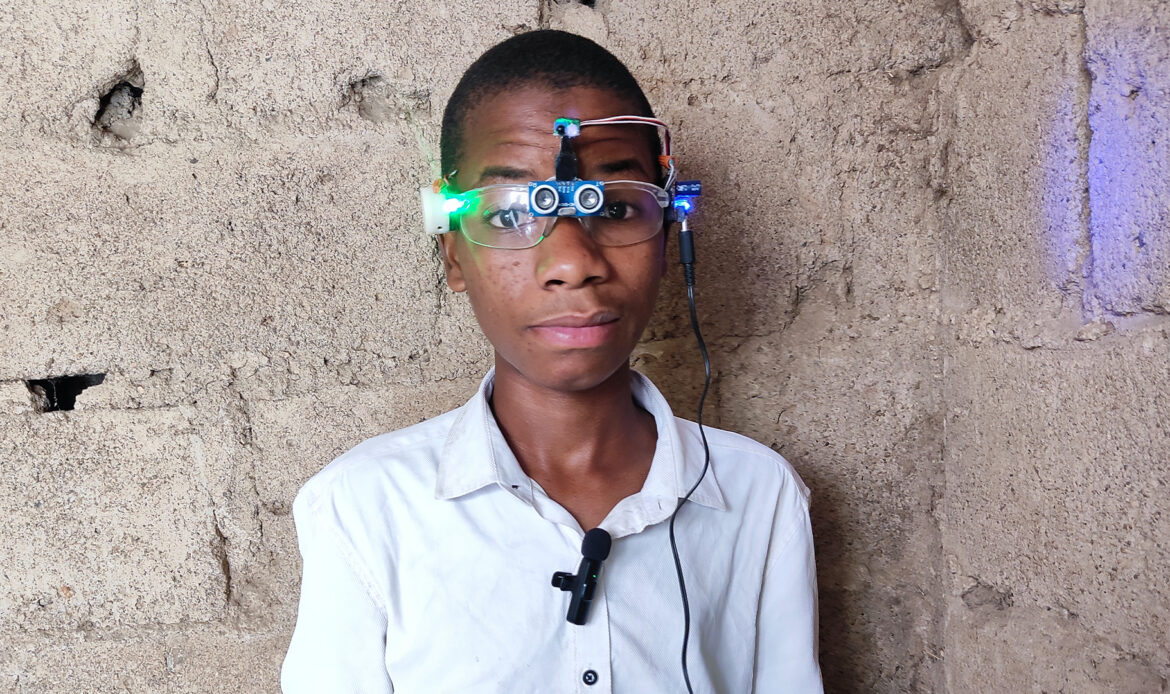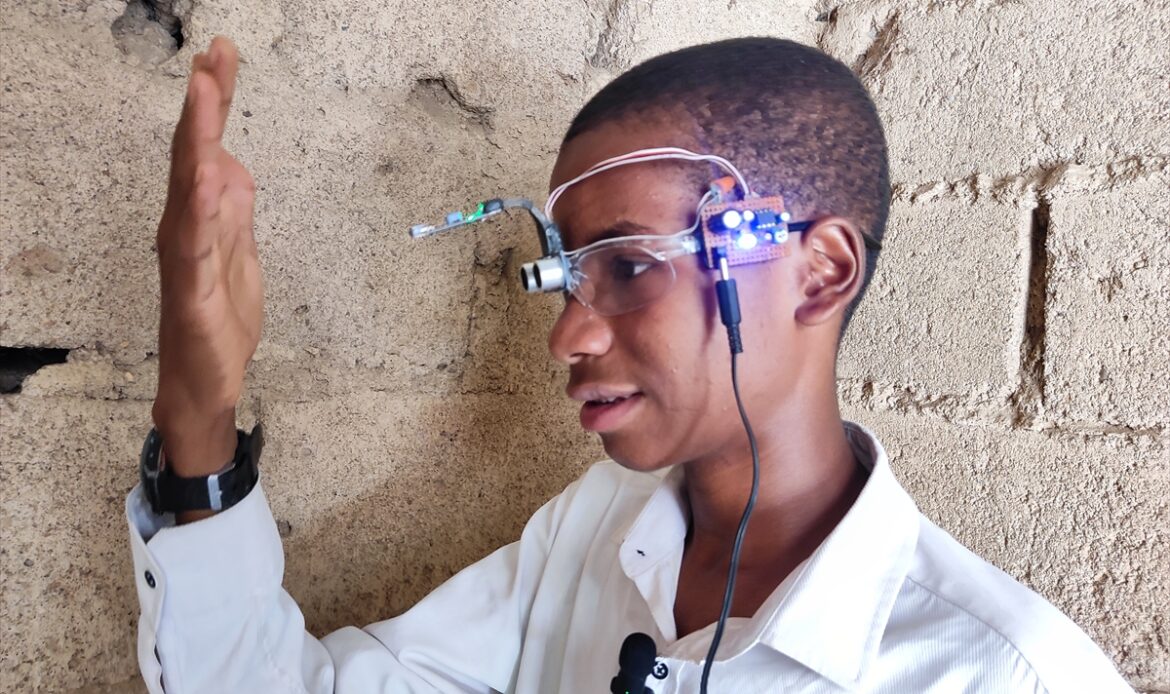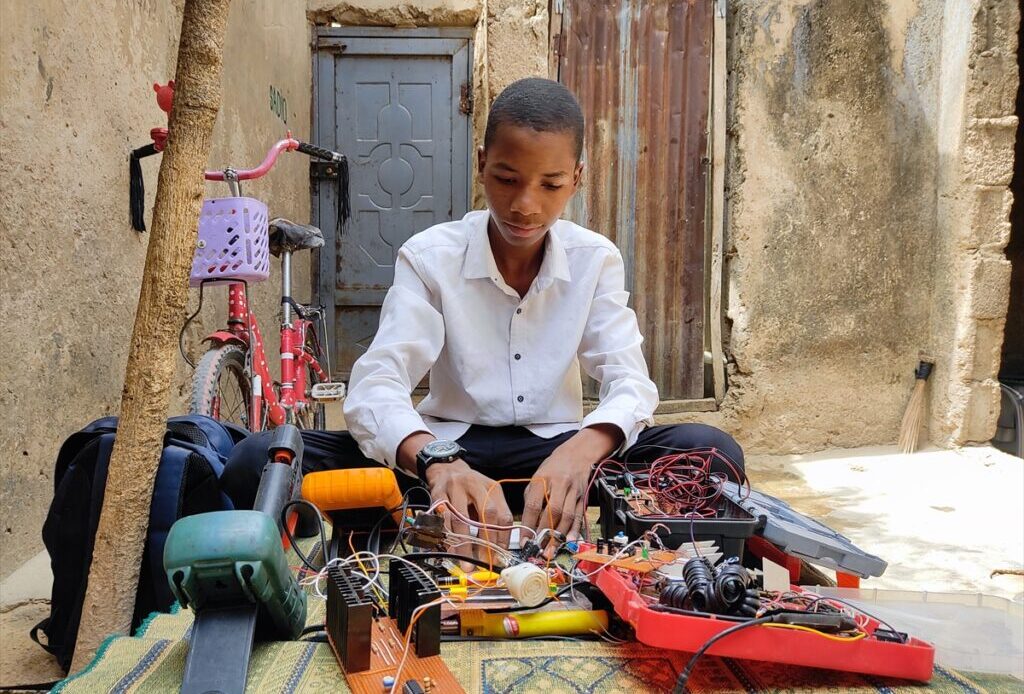
At just 18 years old, Khalifa Aminu from Kano, Nigeria, is pioneering a revolutionary invention to transform the lives of visually impaired individuals. Khalifa has designed and developed sensory glasses with infrared sensors, allowing users to navigate their surroundings safely and independently without relying on traditional walking sticks or guide dogs.
The Inspiration Behind the Invention
Khalifa’s journey into the world of invention began in his childhood when his fascination with building things was fueled by watching movies. He started small, constructing a canoe as his first project, and quickly realised that his creations could be used to solve real-world problems in his community. This passion for invention has led him to develop a range of devices, including a radio station, a bomb detector, and an automatic water sprayer for farmers—all without any external funding or materials for mass production.
His latest and most impactful creation, the sensory glasses, stems from his deep understanding of the challenges visually impaired people face in his hometown. In an interview, Khalifa explained, “I grew up in an area where there are visually impaired people, and I understand what they’re going through. This is why I began the process for a technology-based solution for them.”
Read: Lauritta Onye: From Nollywood to the Paralympics
How the Sensory Glasses Work

The glasses are fitted with infrared sensors that detect obstacles in the user’s path, alerting them to potential hazards and enabling them to walk unassisted. In its current form, the glasses emit a beeping sound when an object is nearby, helping users navigate around it. Khalifa is already working on upgrades to enhance the glasses’ functionality, including the addition of a voice prompt to replace the beeping sound, making the device more user-friendly. He also plans to improve the glasses for better performance in low-light and nighttime conditions.
While still in the development phase, the sensory glasses have already been tested by visually impaired individuals, with overwhelmingly positive feedback. In a recent trial, a blind man tested the glasses and was highly impressed by their effectiveness. “The blind man suggested several improvements, like a wireless switch, smaller parts, and black lenses for better usability,” Khalifa explained. “These suggestions will be implemented in future versions, but the challenge remains the lack of materials and resources for further development.”
The Road Ahead: Seeking Support for Mass Production
Despite the positive response to his invention, Khalifa faces challenges in bringing his sensory glasses to market due to a lack of financial support and resources. He has yet to receive government backing or investment from private foundations, but remains hopeful that investors will recognize the potential of his innovation. His goal is to refine the product for mass production and make it widely available to those in need, both in Nigeria and beyond.

“My advice to young innovators is to use their knowledge to create something, even without waiting for government support,” Khalifa said in an interview. “This can eventually lead to establishing a company that benefits the community. My dream is to get support for a large factory so that I can have a staff working with me, collaborating to advance our knowledge and create technological devices for local use and export.”
Khalifa is also looking ahead to future projects, including the development of a drone for farm irrigation and fingerprint or ID card door openers. His vision is to build a company that innovates affordable, practical technology solutions for everyday challenges.
Read: Ademola Lookman Nominated for 2024 Ballon d’Or Following Superb Season
National Recognition and Future Plans

Khalifa’s work has begun to attract national attention. In June 2024, Nigeria’s National Commission for Persons with Disabilities, led by Dr. James David Lulu, expressed interest in meeting with Khalifa to assess the sensory glasses’ viability and explore ways to support its further development. This interest from the Commission marks a significant step forward in bringing the product to the larger public and possibly securing the support needed to scale up production.
While his sensory glasses are still in development, Khalifa’s innovative mindset and determination to improve the lives of those with visual impairments have already positioned him as a standout young inventor. His long-term dream is to create a sustainable enterprise that develops cutting-edge technological solutions, not just for Nigeria, but for global export.
